A parent's guide to buying a beginner keyboard: Take the stress out of keyboard shopping with our 5 essential tips
Give your child the best possible start with our top tips for buying a beginner keyboard – plus keyboard recommendations
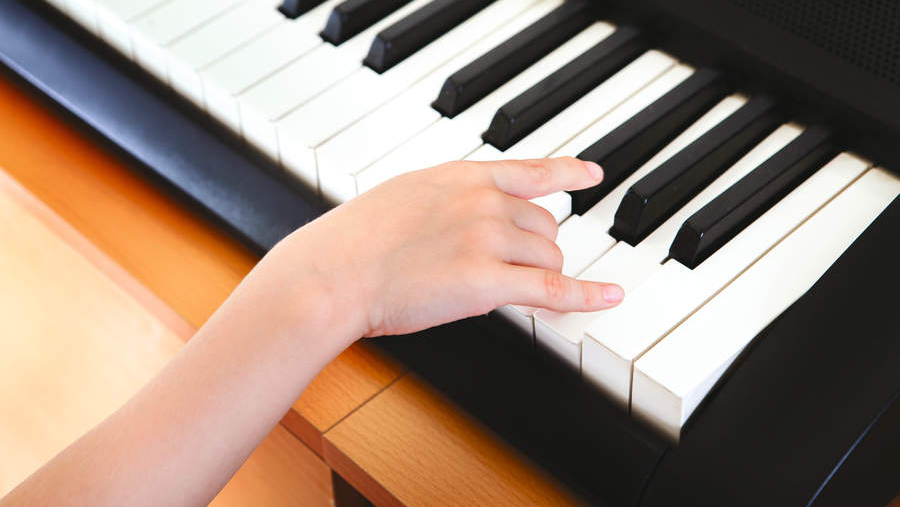
Want all the hottest music and gear news, reviews, deals, features and more, direct to your inbox? Sign up here.
You are now subscribed
Your newsletter sign-up was successful
The keyboard is such a rewarding instrument to play. Not only is it fairly straightforward to pick up, but learning to play the keyboard can also promote better coordination, improve mental health and spark creativity. Now, chances are if you are reading this, your child has shown interest in becoming a keyboard player, and now you are seeking out some expert advice on choosing the best beginner keyboard for their needs. Well, you’re in luck, MusicRadar has you covered.
We understand that keyboard shopping can be overwhelming. With so many choices available, it’s easy to get lost in the sea of options. That's why, at MusicRadar, we're here to simplify the process and guide you in choosing the perfect beginner keyboard for your child.
Ready to dive into the world of keyboards? Here are our top five tips for selecting a keyboard for your child, along with a few recommendations to help them get started on their journey.
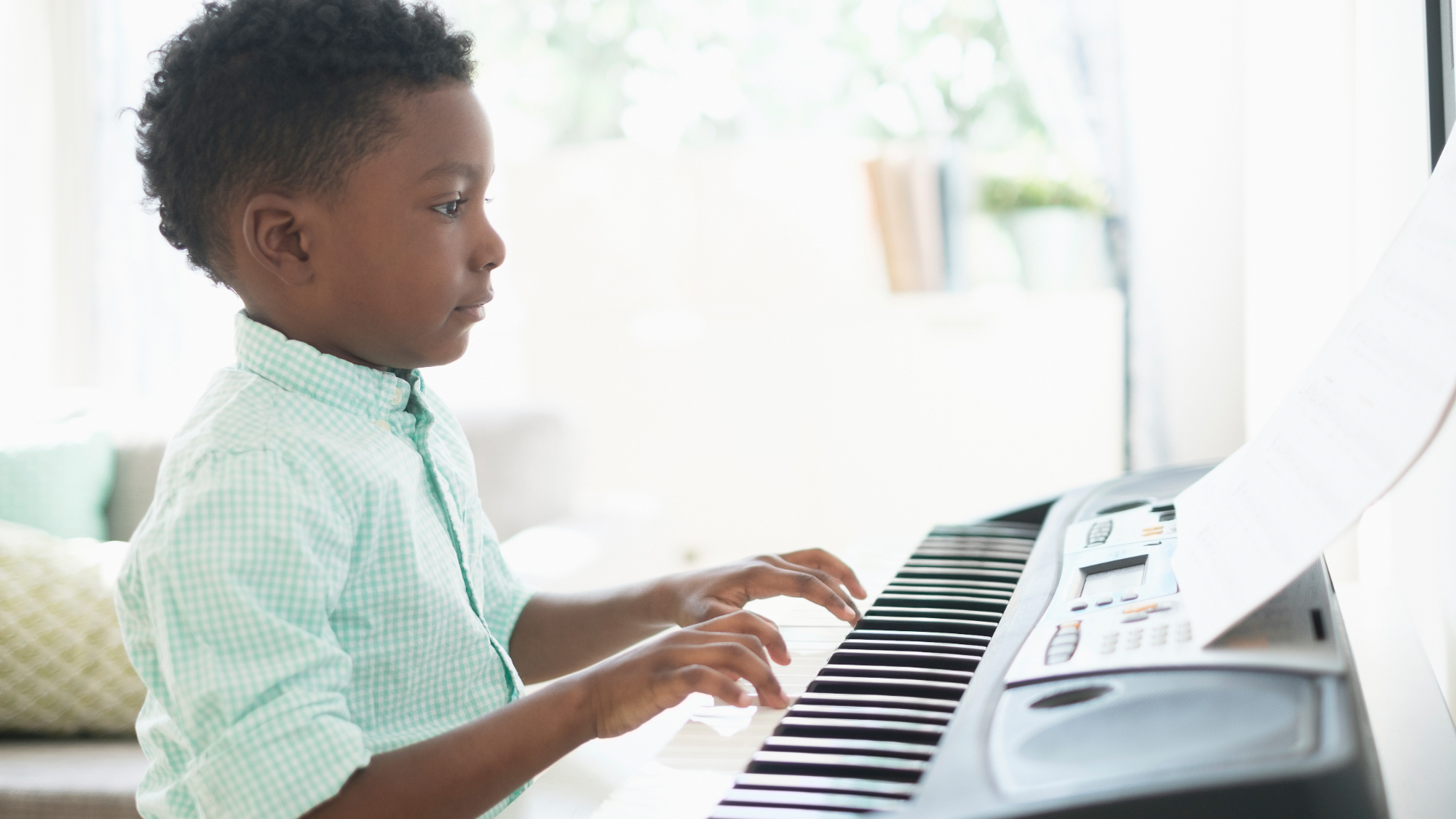
1. The number of keys matters
Now, the first thing to remember is that keyboards come in various sizes with differing numbers of keys. A full-sized keyboard has 88 notes, but this can be a little too large for young children who are just starting out on their musical journey.
Smaller keyboards are available with 76, 61, 49, and even 25 keys, but it’s important to note that you need enough keys to support two-handed playing. So, for that reason, we recommend a minimum of 49 keys.
Our top recommendation would have to be the stellar Yamaha NP-15. This brilliant 61-note keyboard from Yamaha delivers a fantastic feel with plenty of keys to get started. We also have to mention the Casio CT-S300, which, in our opinion, offers superb build quality, an accessible key action and valuable extras.
Of course, if you have the space, you may want to consider going larger, as you won’t need to upgrade as quickly when their capabilities outgrow the smaller keyboard.
Want all the hottest music and gear news, reviews, deals, features and more, direct to your inbox? Sign up here.
2. Pay attention to the action
So, what exactly is the keyboard’s action? In simple terms, it refers to how much force is needed to press the keys. If you come across a keyboard listed with a weighted action, it means the keys will require more force to fully depress. This type of action is designed to mimic the feel of an acoustic piano, but it may be too heavy for young kids and absolute beginners who are just starting out.
Semi-weighted keybeds, for instance, offer a balance between ease of play and the tactile feedback of a weighted action. On the other hand, a synth action provides a springy, responsive feel with minimal resistance. Each option has its own unique benefits and considerations.
It's important to note that players typically start out on a lighter action and gradually progress to heavier keyboards as they gain more confidence and comfort with the instrument.
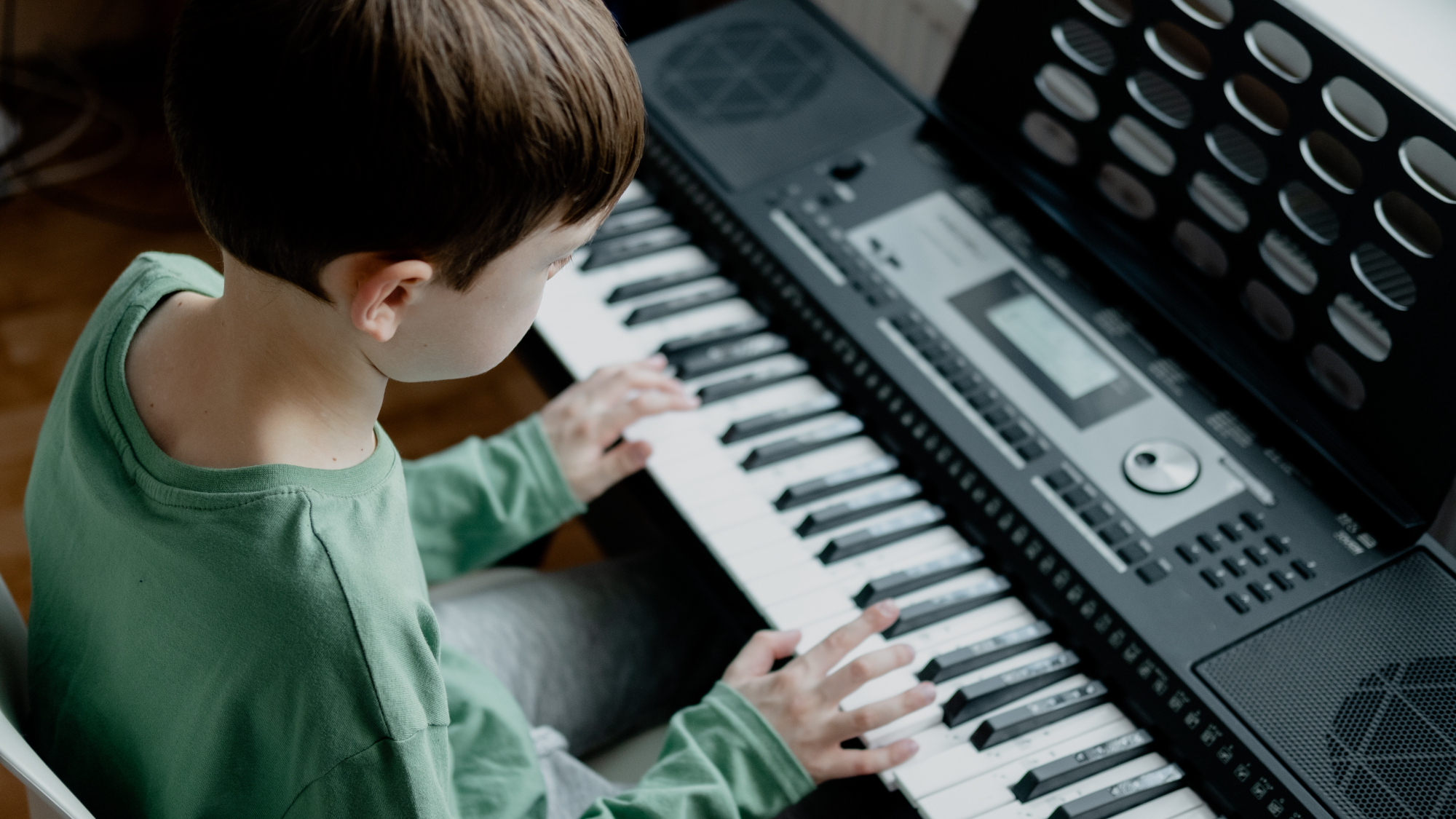
3. Great sounds can inspire
It’s not uncommon to find a keyboard that is fully loaded with hundreds and hundreds of sounds. From piano to strings, organs, guitars, woodwind and synths, keyboards often come packed with many voices you’ll never actually use. When we choose a keyboard, we make sure the core sounds are of a certain quality.
For us, a keyboard must have a high-quality grand piano sound, as this is where you will be spending most of your time. It’s also a bonus if the keyboard has a few modern synth sounds.
So remember, when it comes to sounds, quality most definitely outweighs quantity. A keyboard with a handful of serious great tones, carefully selected for superior quality, is way more valuable than an instrument with 500 mediocre – or unusable – voices. By prioritizing quality over quantity, you're ensuring that every sound they play on their keyboard is a delight to their ears and a joy under their fingers.
4. Pedal compatibility is very important
While a piano-style sustain pedal may not be a necessity at the beginning, we encourage you to consider introducing your child to this concept early on. When the sustain pedal is pressed, it allows you to play a note – or chord – and remove your hands from the keyboard while the notes continue to play. This is a fundamental skill for playing a wide range of music, from contemporary pop to classical.
It's important to note that some beginner keyboards may not come with a pedal as standard, but they often have the connectivity on the back to pair with one. Therefore, before making a purchase, we strongly advise checking if the instrument you are considering is compatible with a sustain pedal.
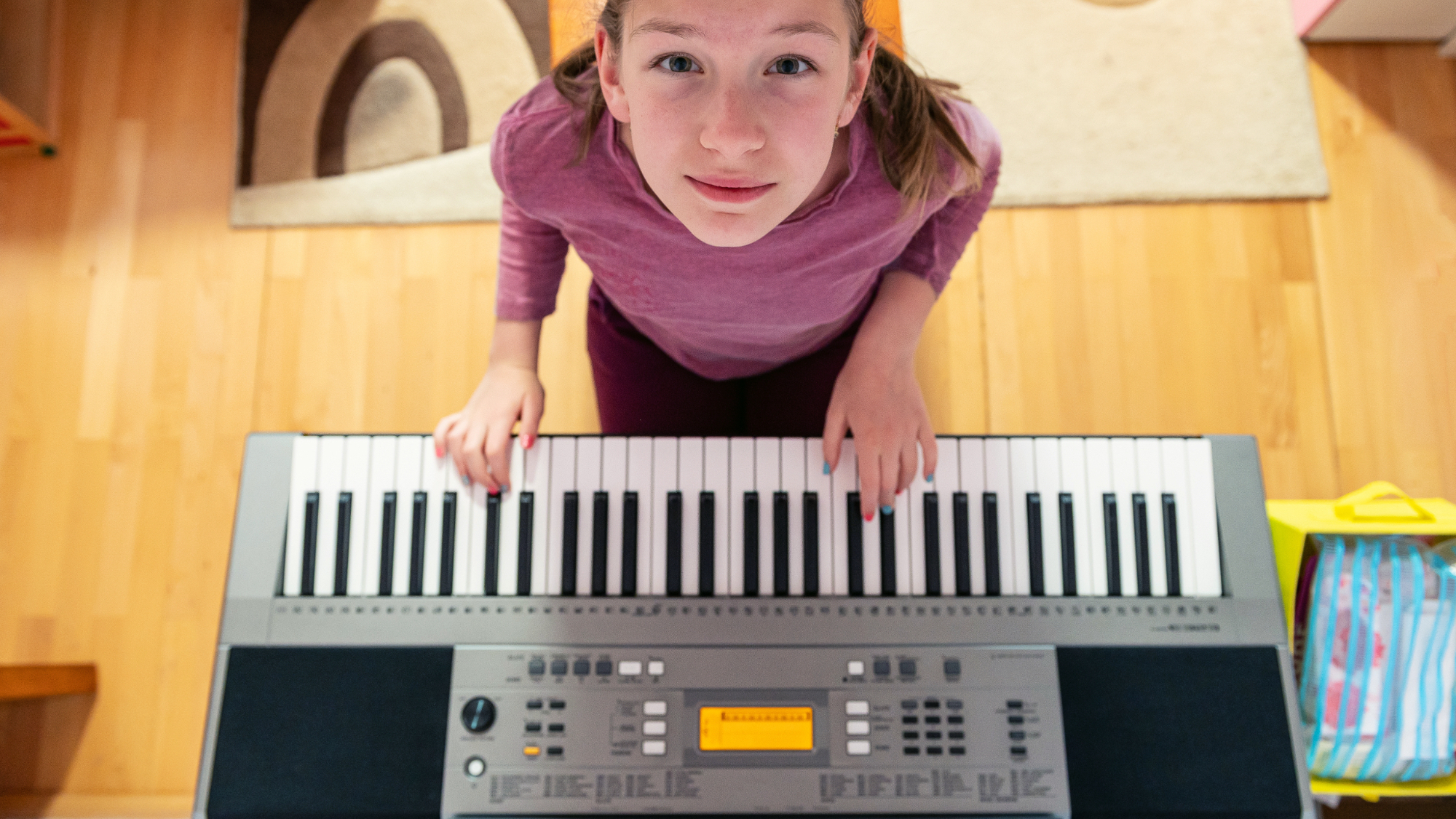
5. Portability is a must
Lastly, it's important to consider the convenience of portability for your child's new instrument. Whether they plan to take it to lessons, school, or simply want to store it more easily, opting for a lightweight and portable keyboard will ensure their comfort and ease of use.
While most keyboards for beginners are designed with portability in mind, it's crucial to remember that the keybed significantly influences the weight of the keyboard. The weight of the action directly affects the physical weight of the keyboard.
If your child is considering taking their new keyboard out and about, we strongly advise investing in a carry case or gigbag. This essential accessory will protect the instrument from the elements and accidental knocks, ensuring its longevity and your peace of mind. For more information on other must-have accessories, check out our beginner keyboard checklist.
Beginner keyboard recommendations
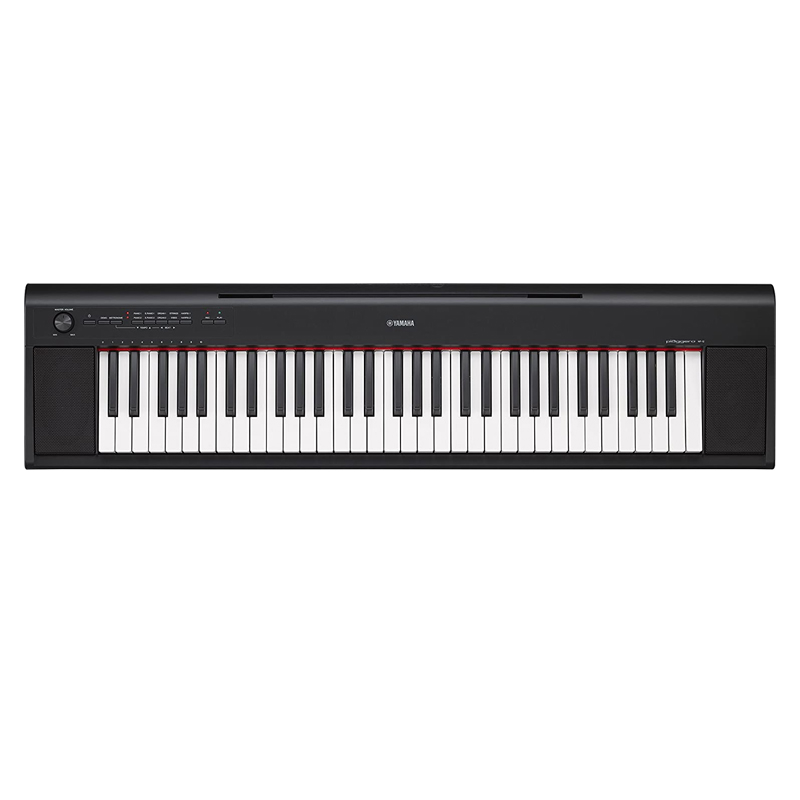
The highly portable Yamaha Piaggero NP15 has to be our top pick for anyone looking to learn piano or keyboard for the first time.
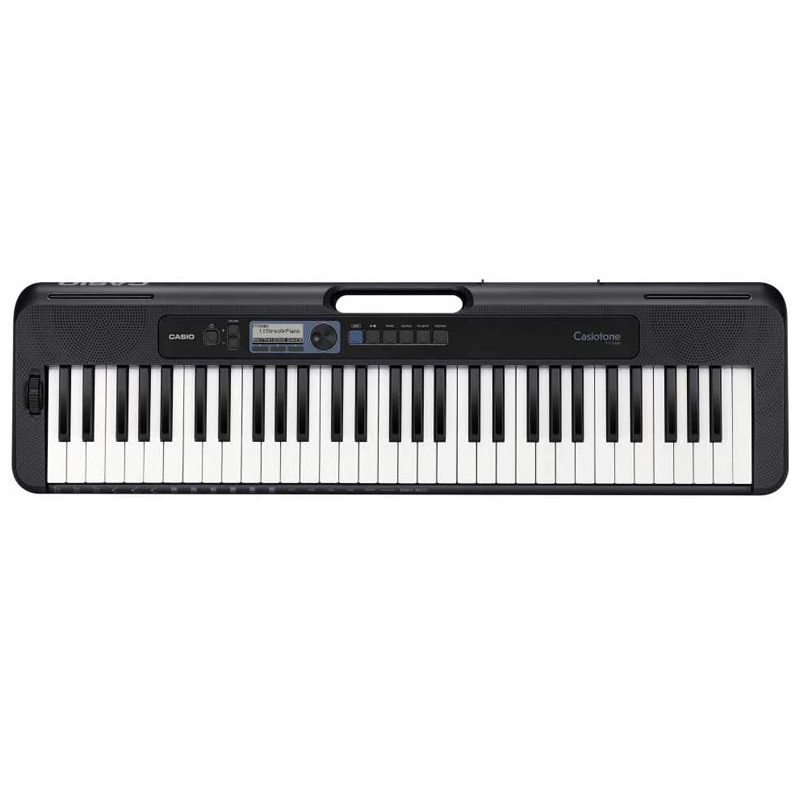
We’ve chosen the CT-S300 for the way it balances features and price. With a full-size, velocity-sensitive 61-note keyboard, this is ideal for newbie players.
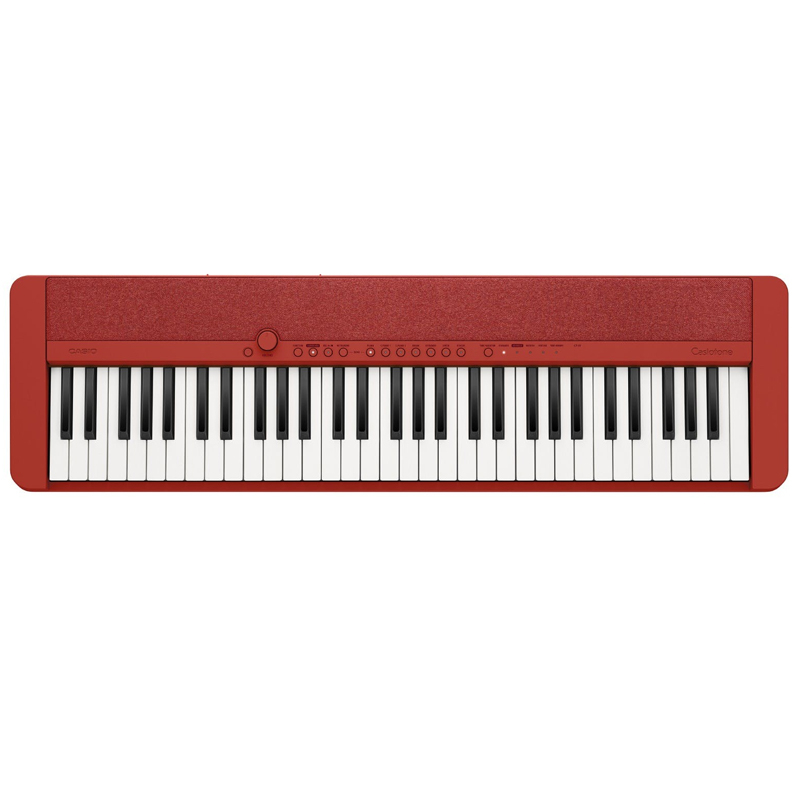
Building on the legacy of the original, the CT-S1 is fully portable with 61 built-in voices, 61 full-size, touch-sensitive keys and 64 note polyphony.
More beginner-friendly buyer's guides
- Sit comfortably with one of the best piano benches
- Enhance your rig with the best keyboard stands
- Learn right with the best online piano lessons
- 5 common excuses for not learning the keyboard
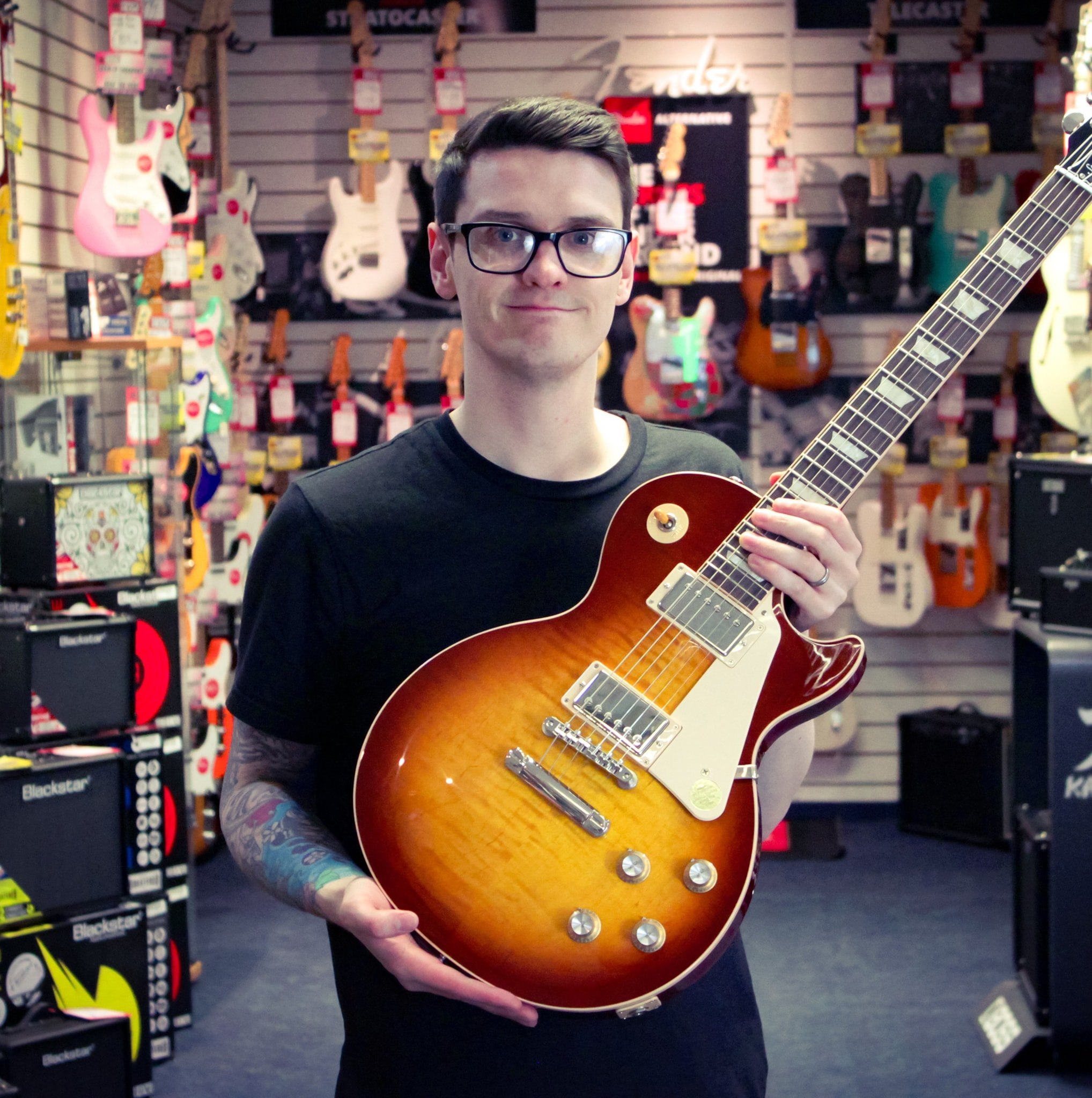
I'm a Senior Deals Writer at MusicRadar, and I'm responsible for writing and maintaining buyer's guides on the site. As part of my role, I also scour the internet for the best deals I can find on gear and get hands-on with the products for reviews. My gear reviews have been published in prominent publications, including Total Guitar, Guitarist, and Future Music, as well as Guitar World.com. I've also had the privilege of interviewing everyone from Slash to Yungblud, as well as members of Sum 41, Foo Fighters, The Offspring, and many more.
In a previous life, I worked in music retail, selling everything from digital pianos to electric guitars. I'm also a fully qualified sound engineer who holds a first-class Bachelor's degree in Creative Sound Production from the University of Abertay.